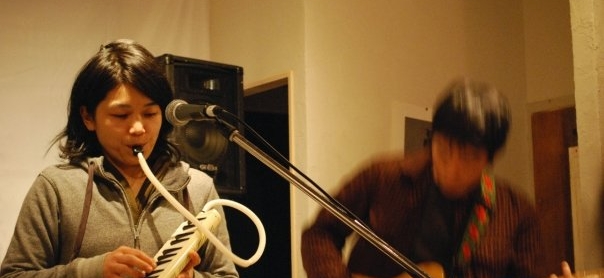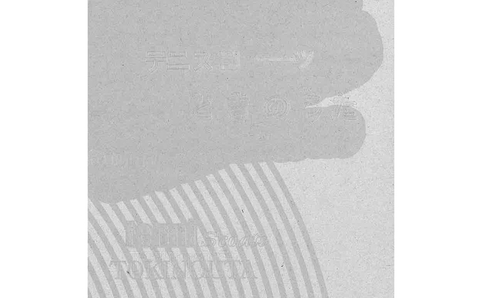Tenniscoats: Tokinouta
The duo's latest finds them in a fascinating, introspective frame of mind

Posted: Thu Apr 21 2011
Between 2007-2009, Tokyo-based duo Tenniscoats worked at a frantic pace. Pumping out no less than five full albums, as well as a handful of solo projects under different names, anyone would think their lives depended on it. In truth, they probably did. Tenniscoats – Takashi and Saya – wouldn't be Tenniscoats if they weren't living and breathing their 'DIY music' (Saya's words, not ours) from morning to night. Spend any time with either of them and you realise the life of a Tenniscoat requires the ability to spin multiple plates, maintaining the constant creative energy that their ongoing projects demand. The key ingredient, according to Takashi, is coffee.
They've obviously been brewing a fresh pot in recent months, as they return this week with Tokinouta, a 15-track collection with two important distinctions: this is the first Tenniscoats album since We Are Everyone (2005) not to have been part of a collaboration, and it was recorded live in front of an audience of four microphones, with no overdubs, and only one session musician (the sound engineer, who occasionally contributes backing vocals). The sparsity makes for a delicious aural experience - warm, enveloping, unfettered - while the lack of outside input has resulted in an introspective album, darker than anything you might have thought Tenniscoats capable of.
In the past, followers of the band have been attracted to their inability to play things straight. Even their best known song, the delicate, folky 'Baibaba Bimba' (from Tan-Tan Therapy), comes with a percussion track made up of heavy breathing. On the rare occasions that they incorporate a more traditional 'rock' approach (take, for example, 'Sodane', from 2009's Two Sunsets), it's always undermined by a childlike tweeness that warns listeners away from taking things too seriously.
None of this can be said about Tokinouta. It's an album full of melodic adventure, though the melodies seem poignant, aching with loneliness. Lyrically, the usually breathless Saya seems more measured. It's an album of ending summers, nights falling, footprints receding. 'I was saving the best for last,' she sings on 'Sappolondon'; 'I turned away and it was no longer there.'
Could this be the album where Tenniscoats lose their enduring innocence? 'Tamashi', a song pitched so high that the eternally youthful singer has to strain above her range, sounds like the work of a songwriter in pain, as she describes being given permission to 'grow up' by an internal spirit. Lyrically, it's a song of vague thanks; musically, it's anything but.
For fans, these songs may be surprisingly yearning, but they are no less rewarding for it, and from time to time the familiar playfulness breaks through. 'Doun Doun Doun' is the kind of quirky instrumental that made Tan-Tan Therapy a real eye-opener, though the doubt is there in Takashi's diminished chords, and the uncertainty played out in Saya's stumbling, uncorrected notes.
Suffice to say, this thoughtful, considered album feels like largely unchartered waters for the duo, and it's well worth an exploration. A mature album in many ways, our only concern must be for their personal happiness.
Time Out Tokyo rating: 

Tokinouta (2,000 yen) is available from selected stores in Tokyo, including Enban, Limaq and Nagi Shokudou. It can also be ordered directly from Majikick Records, by emailing majikick@hotmail.com
Tweets
- About Us |
- Work for Time Out |
- Send us info |
- Advertising |
- Mobile edition |
- Terms & Conditions |
- Privacy policy |
- Contact Us
Copyright © 2014 Time Out Tokyo














Add your comment